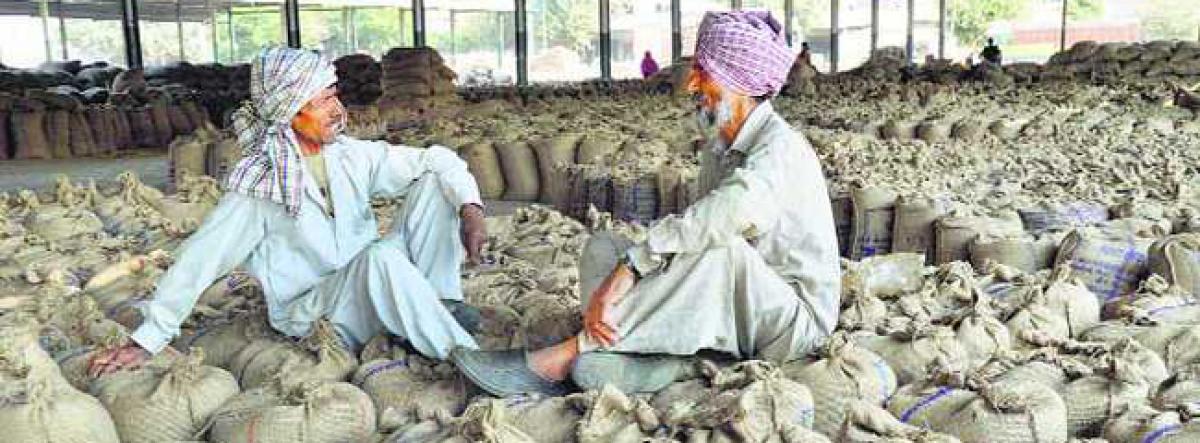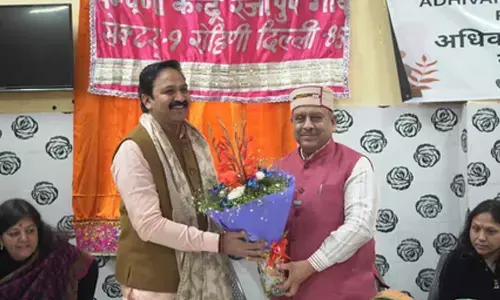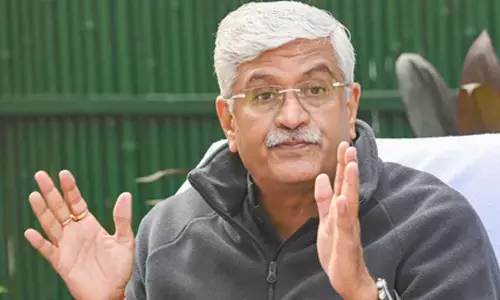Offsetting adverse impact of minimum support price

The Union government has enhanced the minimum support price MSP of kharif crops in keeping with the commitment made in the Budget to increase the incomes of the farmers
The Union government has enhanced the minimum support price (MSP) of kharif crops in keeping with the commitment made in the Budget to increase the incomes of the farmers. It is estimated that this will lead to an increase in inflation of about 0.2 per cent and to a reduction in GDP of about 0.3 per cent. These costs must be borne by the country in the interests of our farmers and our food security. Let us now examine the criticisms of this policy.
The increase in MSP is being said to be inadequate. Actually, there are three levels of calculation of the cost of production. The first level, call A2, is that the direct costs incurred by the farmers such as in the purchase of diesel, fertilisers and farm labour are counted. The second level, called A2+FL, is that direct costs plus the value of the farmer’s own household labour is counted.
If a farmers’ family works for 100 man days in cultivation of the crop, then the cost of that labour is added to the cost of production of the crop even though the farmer does not make a cash payment for this labour. The third level, called C2, is that the rent of land is also added to the cost of production. It appears that the government has calculated the MSP by adding 50 per cent profit to the cost determined at the second level (A2+FL).
It is rightly contended that the rent of land should also be included in the cost just as the rent of building is included in the cost of industrial products. This lacunae notwithstanding, the fact remains that the government has increased the MSP, which is welcome. Second criticism is that the increase in MSP does not reach small farmers.
Indeed, about 80 per cent of our farmers are small farmers who use the crops for their own consumption. They do not sell in the market hence they will not be benefited from the increase in MSP. The small farmers also buy food from the market and will, therefore, be impacted negatively. This argument is correct.
However, it ignores the fact that increase in MSP for the large farmers will lead to an increase in production, an increase in the demand for labour and an increase in the farm wages. I reckon the overall impact of increase in MSP will be positive for the small farmers as well. The criticism of the government on this ground does not hold.
The difficulty in the present policy is that there is no arrangement for the disposal of increased production. The price of food products in the global markets has been declining. The Food and Agriculture Organization (FAO) of the United Nations has calculated that the Global Index of Food Prices has declined from 229 in 2011 to 173 in June 2018.
Against this backdrop, the domestic prices will increase due to the increase in MSP even as the international prices are declining. Production will also increase. So, the Food Corporation of India (FCI) will not be able to sell the food products procured by it at the increased MSP. Such a situation had indeed arisen few years ago when the FCI was saddled with huge stocks of wheat which it was unable to export due to low international prices.
The Supreme Court asked the government at that time as to why the wheat should not be distributed free to the poor instead of letting it rot in the FCI storages. A similar situation is likely to arise in respect of the crops where MSP has been increased recently. Ultimately, the FCI will have to export the excess procurement at a loss in the international markets.
The loss incurred by FCI will have to be made good by the government, which imposes an additional financial burden on it. We will also be making excessive exploitation of our natural resources in making this increased production. The farmers will use more water and apply more fertilisers. We will use more electricity and minerals in manufacturing these fertilisers.
In the end, the increase in MSP will lead to additional financial burden on the government in paying for export subsidies; and depletion of our scarce natural resources for the consumption of foreign peoples. This policy is, therefore, not sustainable.
A possible solution to this problem is to provide relief to the farmers by giving land- and house-based subsidies instead of increasing MSP. A back of the envelope calculation shows that the Central government alone is spending about Rs 5,00,000 crores each year in order to support the rural people through programmes such as food subsidies, fertiliser subsidies, MNREGA, Pradhan Mantri Awas Yojana, etc.
The government can save this amount if all these subsidies are scrapped. This money can be used to provide a lumpsum grant of Rs 50,000 per year to the approximately 10 crore farmer households in the country. This amount would be sufficient for them to keep their body and soul together.
Then the government can leave the farmers free to cultivate or not to cultivate the crops as per demand in the market. The farmers will then not produce in excess of the quantities that are required by the market and our natural resources will be conserved.
Additional subsidies are being provided by the State government towards free electricity and farm loan waivers. Every rural household could be provided with maybe Rs 1 lakh per year if these subsidies are included. That would be a sustainable model of farmers’ welfare.
This suggestion involves leaving the farmers to the vagaries of the market. That can create another problem. Agricultural production increases and decreases in cycles. High price leads to an increase in production, which leads to low prices, which leads to low production, when then again leads to an increase in price and an increase in production.
Providing land-based lumpsum subsidy and removal of the MSP as suggested above will lead to such cyclical increases and decreases in production. The solution is to convert the FCI into a Food Trading Corporation of India.
This corporation should buy food when the prices are low, and sell the same when the prices are high. It can make a profit in this trade. In this way the price volatility can be smoothened without imposing a financial burden on the government. The present increase in MSP, although well-intentioned, will not deliver because the problem of disposal of the increased production is left unresolved. (Author is a former Professor of Economics at IIM Bengaluru)

















